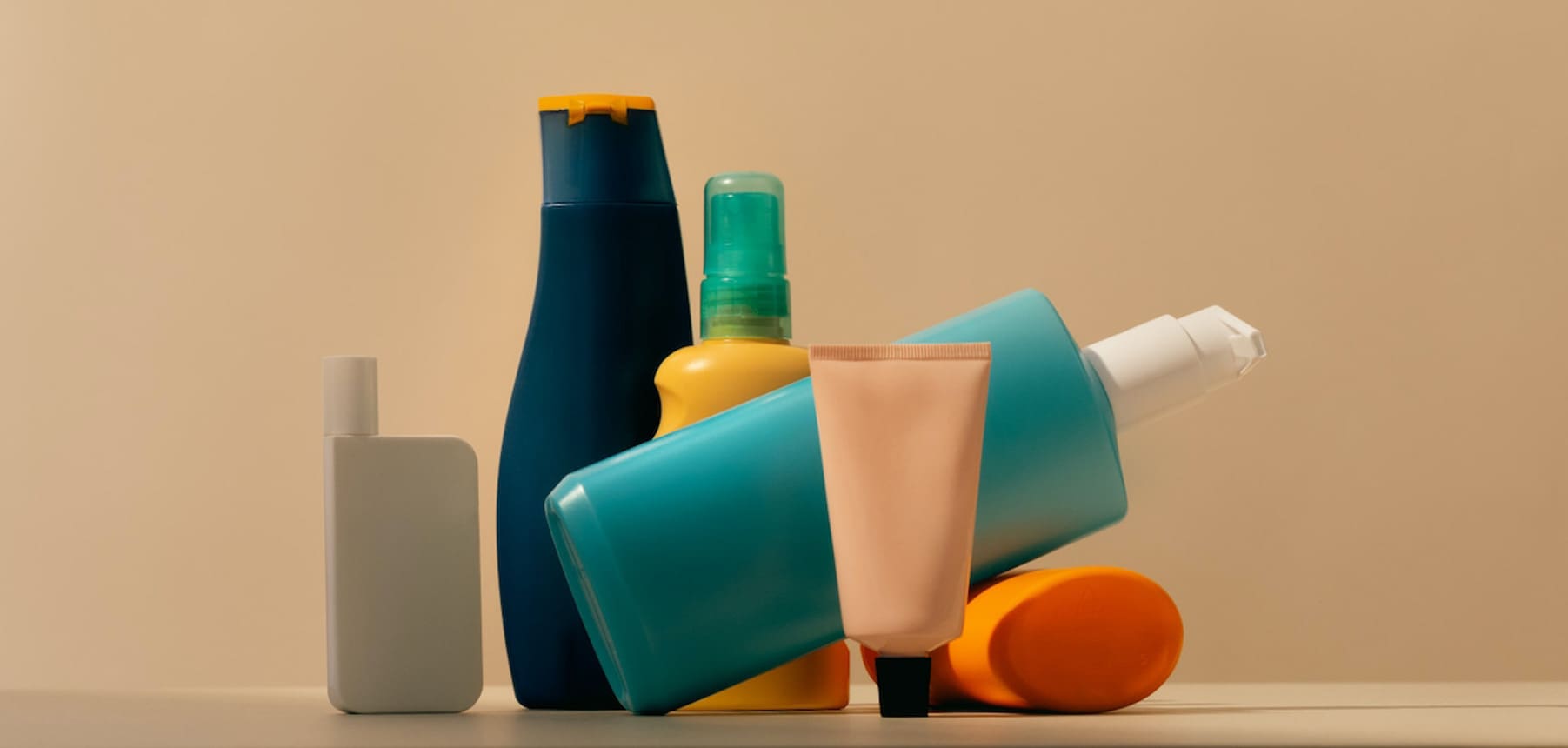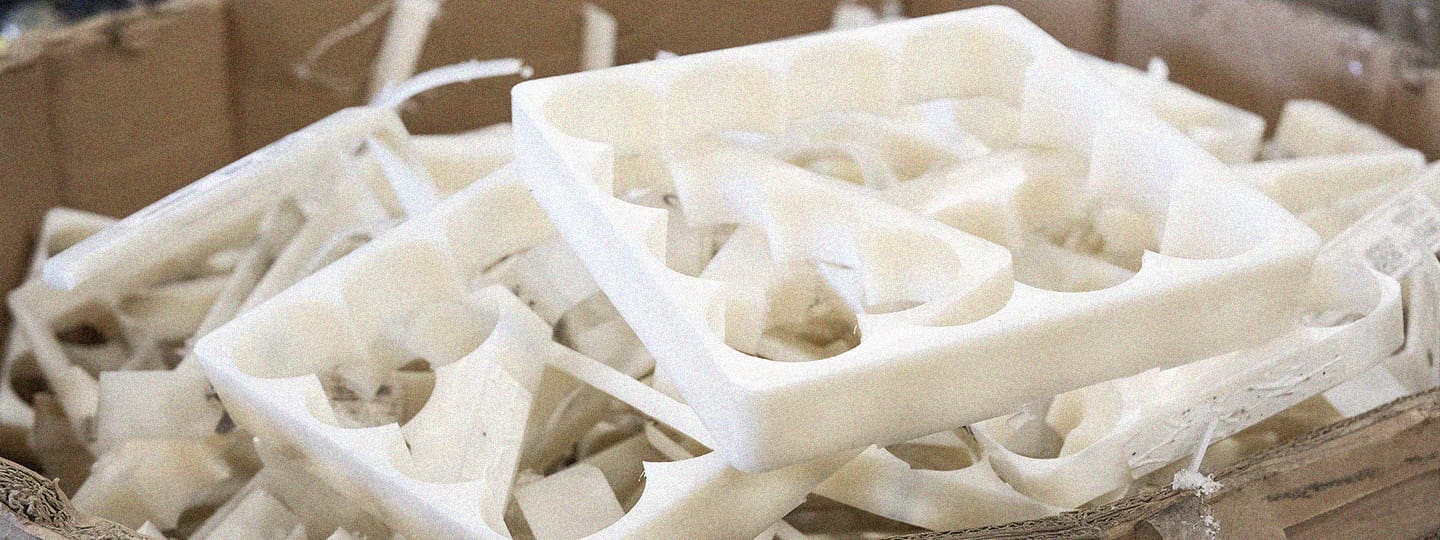Sunscreen is super important for our skin. With hotter summers becoming more of a norm, sunscreen is vital to ensuring your skin is protected from harmful UV rays that can lead to wrinkles, skin discoloration, and even cancer. There are also mountains of evidence that show sunscreen is a threat to the health of our coral reefs.
Our coral reefs are extremely important for the health of our oceans. Not only are they home to more than 25 percent of all marine life, but they also reduce the impact that storms, hurricanes, and cyclones have on coastal ecosystems. Ensuring that you are using sunscreen that doesn’t cause coral bleaching (when water is too warm, corals will expel the algae—zooxanthellae—living in their tissues, causing the coral to turn completely white) is a small but significant way to protect our oceans.
What does it mean for sunscreen to be reef-safe or friendly?
Sunscreens identified as reef-safe or friendly are usually categorized as sunscreens that do not contain oxybenzone or octinoxate, two ingredients found in most sunscreen brands that can cause coral bleaching. While those two ingredients are the most common to look out for, other ingredients in sunscreens can contribute to poor coral health. Sunscreen containing microplastics, nanoparticles, triclosan, para-aminobenzoic acid (PABA), homosalate, 4-methyl benzylidene camphor, and octocrylene are all harmful to reefs and should be steered clear of.
What sunscreens should you use?
Luckily, numerous brands offer reef-safe sunscreens. An easy way to find sunscreens that are reef-friendly is by looking for mineral-based sunscreens or sunscreens that are “no-nano,” which means they don’t contain nanoparticles. It’s also advisable to avoid spray-on sunscreens. If you would like to be extra safe, however, here are five sunscreens that work well for your skin and our coral reefs:
General: Badger Active Mineral Sunscreen Cream
This cruelty-free, non-GMO, SPF 30 sunscreen is mineral based, made with only five ingredients, and is an excellent sunscreen for a day at the beach or a day out in the sun. Not only is it water-resistant for 40 minutes, but it is also unscented, which is excellent for people sensitive to scented sunscreens and lotions.
Sensitive skin: California Baby Sunscreen
California Baby is another excellent option for sensitive skin types who want to keep the ocean healthy. California Baby is water resistant for up to 80 minutes, has an SPF of 30, and focuses on reflecting sun rays away from the skin rather than absorbing them, as many other brands do. Their formula is also specifically formulated for people with eczema to ensure ultimate comfort.
Darker skin: Cocokind Sunscreen
If you are a person with darker skin, a big issue when looking for sunscreen is finding a brand that doesn’t leave a white cast on your skin. Cocokind is a great mineral-based, Asian-owned brand that focuses on providing a reef-safe alternative for dark-skinned people. With SPF 32, Cocokind protects against UVA and UVB rays and is scent-free.
Indigenous owned: Mama Kuleana Reef-safe Sunscreen
If you want a sunscreen that protects coral reefs and supports an indigenous-owned company, Mama Kuleana is a great pick. Made in Hawaii, this SPF 30 broad-spectrum sunscreen brand is focused on ensuring Hawaii’s coral reefs, marine life, and your skin are safe from harmful ingredients found in most sunscreen. In addition to having no toxins in their product, they use 100% biodegradable and microplastic-free eco-jars to ensure they are minimizing their waste as much as possible.
Athletes: Thinksport Sunscreen
Thinksport sunscreen is a great option for people who want to spend extended periods out in the sun, such as athletes and people who enjoy the outdoors. Thinksport is a mineral-based sunscreen that is free of harmful toxins in most sunscreens and works for all skin types. They also have numerous options for children and babies older than six months.
While choosing a reef-safe sunscreen is a great option to reduce your impact on the ocean’s coral reefs, there are also ways you can continue to help limit your impact. Wearing more protective clothing at beaches, such as long sleeves, or using umbrellas to block out the sun, can limit your use of sunscreen overall. In addition, ensuring you are disposing of trash properly at the beach is extremely important to ensure less pollution. Lastly, educating yourself about coral reefs and spreading the word is a great way to spread knowledge and build awareness of the issue. A happy ocean is vital in our fight against climate change, and we can get there if we work together.
Source: Information sourced from Save the Reef.





